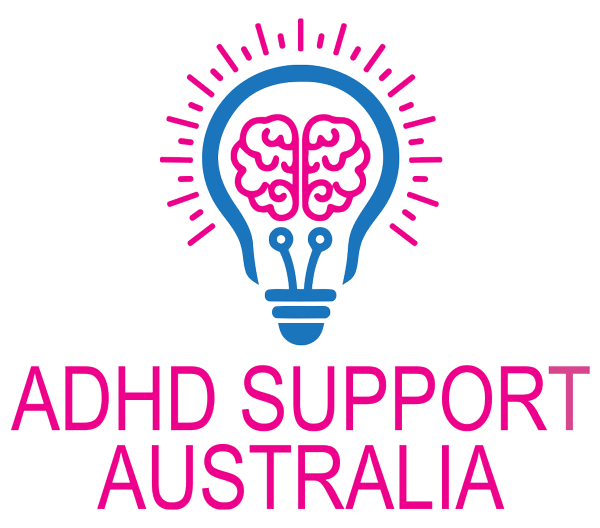
Why Social Skills are so Important for Mental Wellbeing and Tips for Improving them
Social skills are crucial for forming meaningful and lasting relationships, which help make us more resilient. Unfortunately, poor social skills can lead to negative outcomes, including mental health issues and difficulties in forming friendships. This is something that is particularly prevalent in our neurodivergent community.
Let’s explore what the research shows regarding the significant impact of social skills on mental health and resilience and look at some practical and effective tips from the PEERS social skills program to help teens and young adults improve their social interactions.
Negative Outcomes of Poor Social Skills
Mental Health Challenges
Increased Anxiety and Depression: Research has shown that individuals with poor social skills are more likely to experience anxiety and depression. For instance, a study by Segrin & Flora (2000) found a strong correlation between deficient social skills and higher levels of depression and loneliness.
Low Self-Esteem: Difficulty in social interactions can lead to a negative self-image and lack of confidence. Research by Spence (2003) indicates that understandably adolescents with social skills deficits often struggle with self-esteem issues.
Reduced Resilience
Inability to Handle Social Rejection: Those with poor social skills may find it harder to cope with rejection, leading to increased stress and frustration. According to a study by Prinstein & La Greca (2002), adolescents who struggle with peer interactions exhibit lower levels of social competence and higher rates of emotional distress.
Poor Problem-Solving Skills: Limited social interactions can hinder the development of effective problem-solving skills, reducing overall resilience. Studies, such as the one by Eisenberg et al. (2000), highlight the link between social competence and adaptive coping strategies.
Difficulty Forming and Maintaining Friendships
Lack of Close Relationships: Poor social skills can make it challenging to make and keep friends, resulting in social isolation. A longitudinal study by Parker and Asher (1993) found that children with poor social skills had fewer friends and more frequent peer rejection.
Misunderstandings and Conflicts
Poor communication skills often lead to misunderstandings and conflicts in relationships. Research by Rose and Asher (2004) shows that children with social difficulties are more prone to conflicts and misunderstandings with their friends.
Tips for better Social Skills
Initiating and Maintaining Conversations
Remember when you’re getting to know a new person, the goal of your conversation is to find out more about them, for them to find out something about you and to see if you have any common interests.
Start your conversations using open-ended questions that elicit a longer and more informative answer. Maintain your conversations by listening carefully, showing genuine interest and by asking follow-up questions on the same topic.
Always remember to assess the interest of the person you’re talking to. Be alert to whether they are interested in talking to you or have bored of the topic. There are concrete signs to look out for. Ask the following questions: are they asking me questions? Are they looking at me? Are they smiling? Are they nodding? If so, continue the conversation. If not, they may not be interested, so consider changing the topic or bringing the conversation to a close and moving on.
Parents can encourage children to practice these skills in everyday situations, such as family gatherings or extracurricular activities.
Handling Peer Rejection and Bullying
Often the way your child reacts to teasing, bullying or rejection can be a reason it continues. Your child may have understandably intense feelings, for instance when being teased, but overreacting can play into the teaser’s hands, make it more fun for them and make it more likely they will do it again.
Responding to mild teasing in a more nonchalant way, for example with a shrug and a short comeback such as ‘whatever’ or ‘is that supposed to be funny?’ before walking away, will make it less likely to be teased again in future.
Parents can help their children role-play different scenarios to help them practice their responses to build confidence for when they need to do this in a real-life situation.
Developing and Sustaining Friendships
If your young person isn’t participating in extracurricula activities they will be missing out on opportunities to practice their social skills and find a source of new friends.
Support your child in finding and participating in activities that interest them, providing opportunities to meet new people and form friendships and help them to make plans to spend time together outside of the activity.
The PEERS Social Skills Program as an effective solution
PEERS (Program for the Education and Enrichment of Relational Skills) program has been extensively researched and proven effective in improving social skills among teens and young adults. A study by Laugeson et al. (2009) demonstrated significant improvements in social skills and reductions in social anxiety among adolescents who participated in the PEERS program. The program’s structured approach, which includes role-playing, group activities, and home practice, ensures participants gain practical, real-life skills in a safe space. Because parents also engage in the PEERS program, they are able to act as a ‘social coach’ for their child outside of the program and when it ends – further enhancing its effectiveness over time.
Another study by Gantman et al. (2012) found that young adults who completed the PEERS program reported better social functioning and increased ability to form and maintain friendships. These findings highlight the program’s effectiveness in addressing the social challenges faced by those seeking to increase their social skills and confidence.
ADHD Support Australia offers the PEERS program online. The program offers structured, evidence-based training to improve social skills in teens and young adults, covering essential skills such as:
Effective Communication: – how to start, maintain, and end conversations appropriately.
Building Relationships: Strategies for making and keeping friends, including managing conflicts.
Social Problem-Solving: Techniques for handling social challenges and developing resilience.
These skills are learned during fun engaging online sessions, role-playing, group activities, and home practice, ensuring teens and young adults have practical tools to apply in real-life situations.
Improving social skills is essential for forming meaningful and lasting relationships which in turn impact better mental health and resilience. Research supports the effectiveness of programs like PEERS in enhancing social interactions and reducing social anxiety.
ADHD Support Australia’s PEERS program offers valuable strategies to help teens and young adults develop these crucial skills, leading to better mental health outcomes and stronger relationships. By supporting your child in developing these skills, you can help them build a more connected and fulfilling life.
The author, Vivian Dunstan, is Founder & CEO of ADHD Support Australia ADDCA trained ADHD Coach, Parent Coach & Facilitator of Parenting Children with ADHD – a 6-week online course, Certified Tech Addiction & Digital Health Educator (NIDHW) and Facilitator of the 6-week online Digital Parenting Program, Certified PEERS Social Skills for Teens & Young Adults coach and program facilitator, Certified NeuroACT provider & course facilitator, non-practicing teacher, parent of a young adult with ADHD and has ADHD herself.
